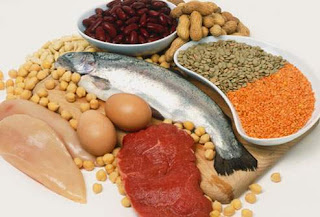One of my grandsons has a milk allergy and a nut allergy. He could have such a bad reaction that he could actually die from ingesting walnuts. There are kids with a peanut allergy who react the same. My daughter-in-law is lactose intolerant; dairy gives her severe gastrointestinal problems.
Whether you eat a vegetarian or vegan diet, a Paleo or low-carb diet, I don't care. You need to find out what works for you, what makes you feel good, what gives you the right amount of energy... and let others find their own way as well. I will say that eating whole, real, quality food is best--fresh fruits and vegetables, quality proteins and fats, whole grains. If you can do that most of the time, you're good to go.
All that being said, as a long distance runner, you need to ingest a certain amount of fluid, carbs, and protein along with foods that provide antioxidants, to help your body prepare for your run (pre-run) and to help your body recover from your run (post-run).
Pre-Run Nutrition
I like to tell my runners to eat their carbs around their running. If you are going out for a long run early in the morning, eat a high-carb dinner the night before. You also need to drink water, as fluid ingestion is required along with the carbs for storage in the body. You may or may not want to eat something before you run in the morning, and you will need to experiment with what works for you. But if you do, it should be light and not more than a few hundred calories.
Post-Run Nutrition
Ingesting fluid, carbs, and a little protein within 30 minutes of finishing has shown to be most important in recovery from and adaptation to the stress of your run. That is the time when your muscles are most receptive to glycogen resynthesis and muscle repair. Though receptivity will gradually decline after that first 30 minutes, it does remain high for about 90 minutes, so you should then eat a regular meal that includes carbs, protein, foods with abundant antioxidants, and fluid within a couple hours of your run.
A word about ingesting calories during your run--contrary to current practices, recent research has shown that taking in a lot of (or any) calories during your long run is unnecessary. In fact, if you do normally use some gel or sports drink during your long run, it's a good idea to go without any calories and just drink water to thirst for at least a few of your long runs. This will help your body adapt better to storing glycogen, so that in your future long runs (and races) your body will be more efficient in burning glycogen, relying more on fat.
Experiment with different ways and decide what works best for you.




No comments:
Post a Comment